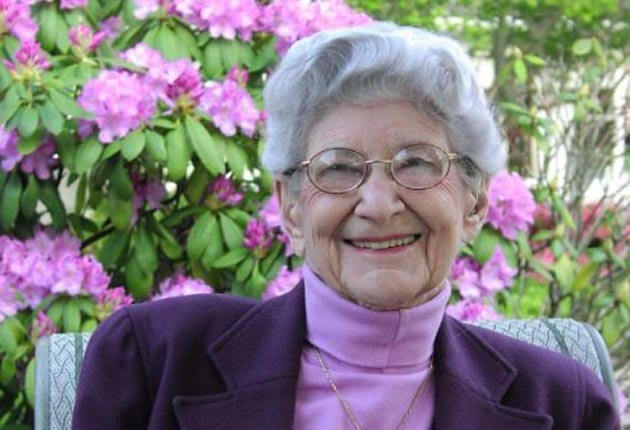Katherine Kendall: Social work educator who oversaw the international development of her discipline

Katherine Kendall was born as social work emerged from its origins in Victorian and Edwardian urban society and died, at the age of 100, by which time it had spread around the world. She contributed to this but also attempted to draw it together when the diverse cultures in which it is practised sometimes made that difficult.
The journey of her profession in some ways mirrored her personal one. Katherine Anne Tuach was born in 1910 in the village of Muir of Ord in Scotland. She and her three brothers, Roderick, William and James, were the children of Annie Scott Walker and Roderick Tuach. He was a builder and she was musically gifted, with a beautiful singing voice.
He emigrated to Canada in 1913 to take advantage of a land grant. Plans for the family to follow were upset by the First World War, when he was called up and was wounded in the leg at Ypres. His family joined him in 1920 in Chicago, where he foresaw brighter prospects. This was the rapacious and exploitative city of Upton Sinclair's The Jungle and what young Katherine saw of the oppressive conditions of the stockyards, peopled by Polish immigrants, deeply influenced her passion for social justice.
After high school Kendall studied romance languages, history and philosophy at the University of Illinois. She intended to become a foreign correspondent but fell in love with her Spanish teacher, Willmore Kendall, a young assistant professor. After she gained her BA in 1933, they went to Oxford, marrying two years later in London. He became a foreign correspondent with United Press, which took them to Spain, where they associated with left-wingers – something, she said, which "coloured me pink". When the United Front triumphed in 1936, the Kendalls left to return to academic life in Illinois, believing that democracy was safe.
They later moved to moved to Louisiana, where Willmore had a university post. She gained her Masters in social work in 1939 (a doctorate followed in 1950), the year before she became a US citizen. During the war she worked as a home service correspondent and then as a regional assistant director of training for the American Red Cross. In 1945, she became assistant director in the international service of the federal US Children's Bureau. The Kendalls' work kept them too often apart and they divorced in 1950. In 1947 Kendall joined the United Nations, for whom she conducted a world survey of social-work training to assess qualifications needed in the field of social welfare.
Kendall had joined the board of the then International Association of Schools of Social Work in 1950. Founded in 1928, it brought together social work academics. She became secretary in 1954 and secretary-general in 1966 and worked part-time until 1971. She also worked in different capacities for the Council of Social Work Education, which accredits US social work qualifications, and which she had joined as educational secretary at its foundation in 1952. She turned the IASSW from what was essentially a European body, with modest ambitions, into an international organisation. Before the war it had 75 member schools in 18 countries; when Kendall retired in 1978 there were 500 school members in 70 countries.
In the Cold War and a post-imperial age, this was no easy task. Also, in some countries (China and the Soviet Union were examples) it did not officially exist. In others its advocacy of social justice and human rights could be a matter of (literal) life and death for social workers. Under Kendall's guidance social workers and their educators came together across borders and oceans, if not without occasional tension, but able to assert that social work was about human rights. In 2004, CSWE established The Katherine A Kendall Institute for International Social Work Education to foster the development of the international content in social work.
Kendall was calm, knowledgeable, unassuming and courteous, buoyed by great optimism and generous with her time. She remained active until her death, writing (she published two histories of social work and a memoir during the last two decades of her life), speaking and acting as a consultant around the world.
Katherine Kendall, social work educator, born Muir of Ord, Scotland 8 September 1910; married 1935 Willmore Kendall; died Mitchellville, Maryland, US 1 December 2010.
Join our commenting forum
Join thought-provoking conversations, follow other Independent readers and see their replies
Comments